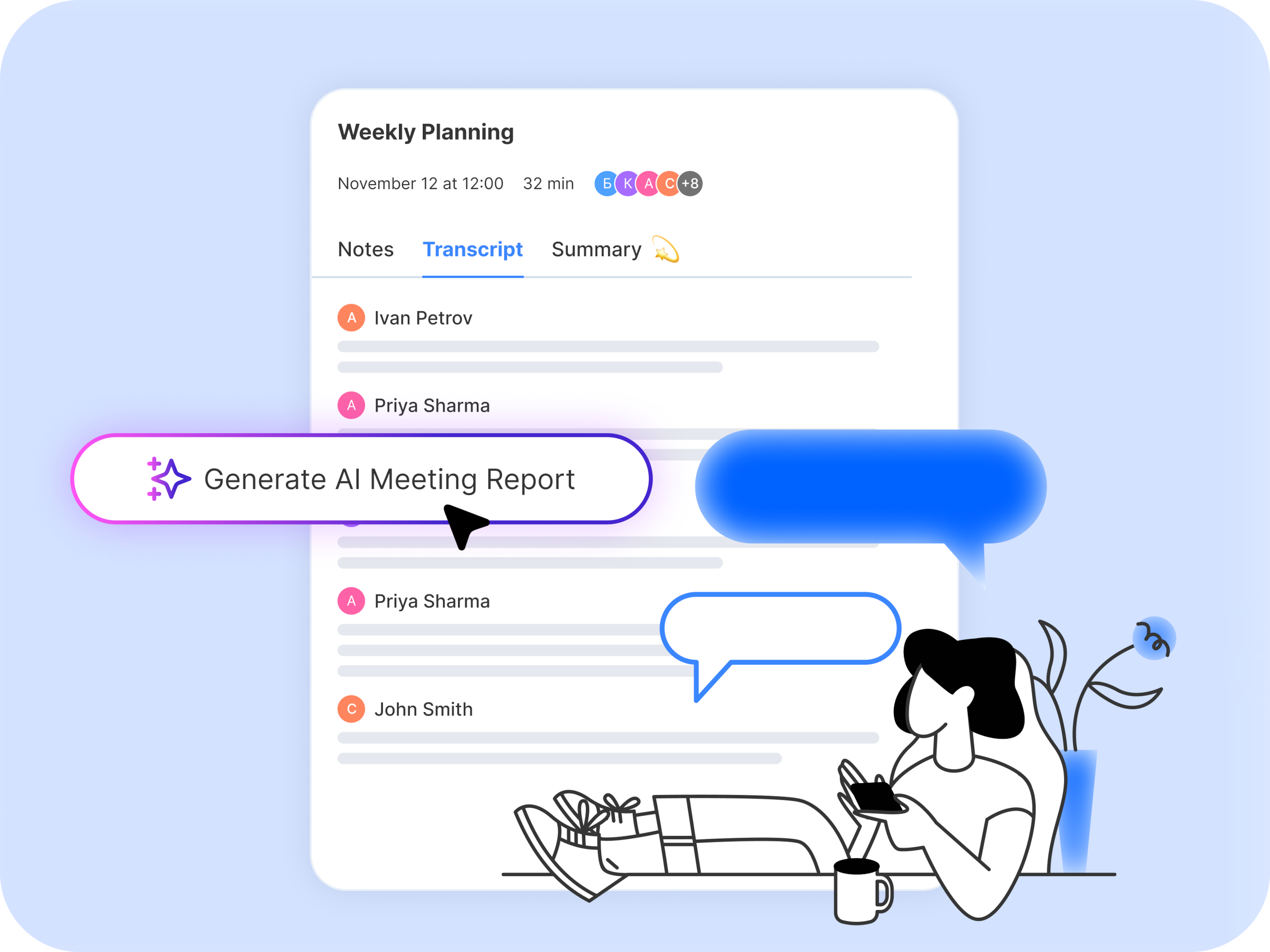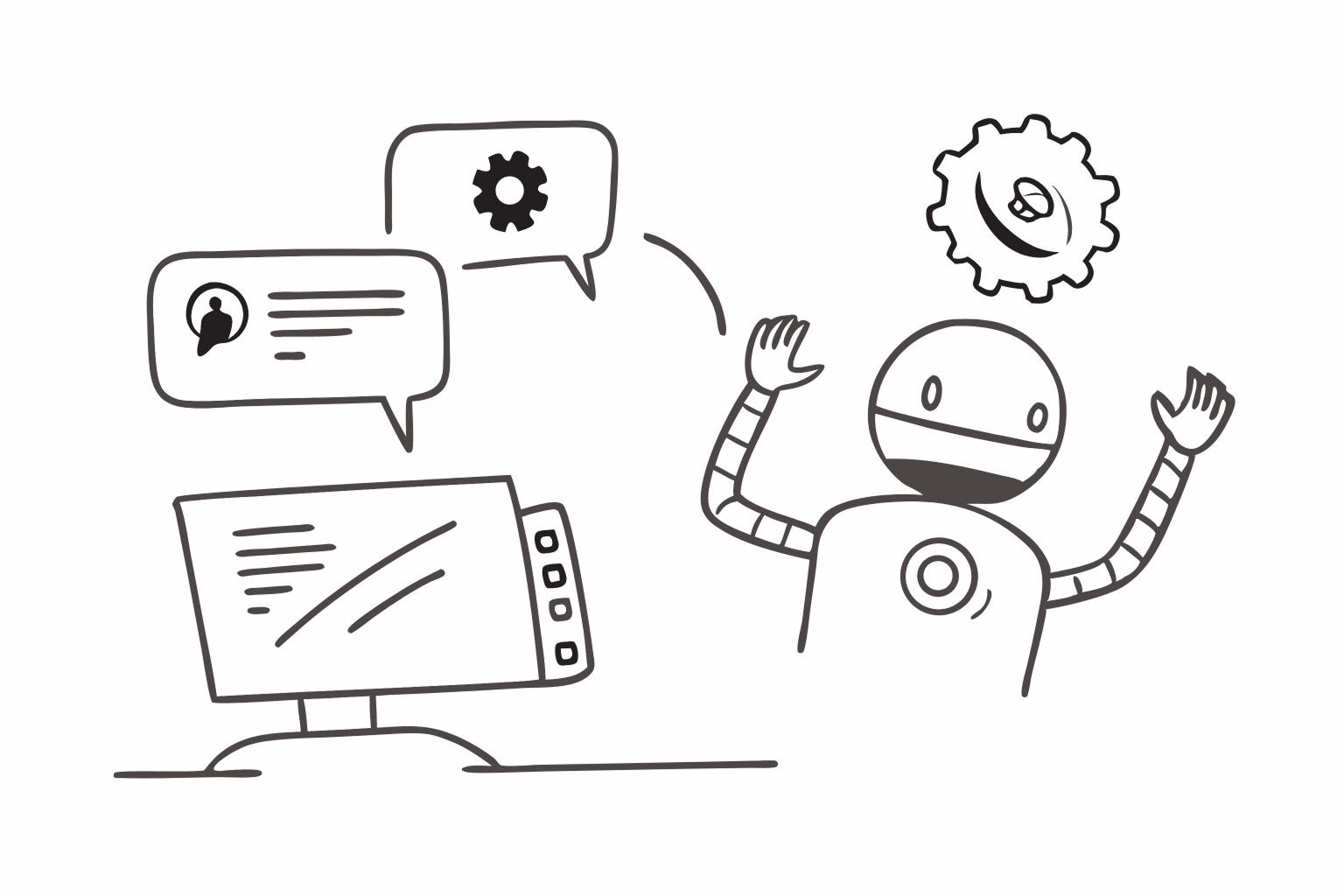Introduction: Why AI Agents Matter
In today’s fast-paced landscape, organizations are looking for effective ways to grow, optimize, and innovate. One of the fastest emerging solutions is the use of artificial intelligence and AI agents. These intelligent systems function like digital employees, working tirelessly around the clock to automate workflows, generate real-time insights, and improve overall productivity with AI. As we stand on the cusp of the future of work, adopting AI agents can be the game-changer that transforms how you operate. Whether you’re aiming to reduce costs with AI, scale operations more quickly, or stay competitive in an increasingly digitized environment, the power of AI agents simply cannot be ignored.
But what exactly are these AI agents? Broadly speaking, they are AI-powered tools designed to handle tasks that would typically take humans significant amounts of time and effort. They can serve as an AI digital assistant, an always-on partner that automates your everyday tasks. From customer support automation and AI for SEO to advanced business automation use cases in marketing and finance, the impact of AI in business is escalating at an impressive pace.
This article dives into everything you need to know about AI agents—how they work, the benefits they offer, and practical ways to integrate them across various functions. We’ll also explore examples of smart business tools such as Salesforce Agentforce, Ubersuggest, Vertex AI Agent Builder, and more. By the end, you’ll have a comprehensive understanding of how AI agents can help you scale operations, optimize ad campaigns, and carve out a competitive edge in the future of work. Let’s get started!
Understanding AI Agents
What Makes an AI Agent?
At their core, AI agents are intelligent systems powered by cutting-edge algorithms. Generative AI plays a crucial role in enhancing the learning process of these AI agents through previous interactions, making them more efficient. They process large volumes of data to make decisions, execute tasks, and deliver real-time insights without constant human intervention. Thanks to advancements in business automation and machine learning, an AI digital assistant can handle everything from scheduling and data entry to more complex activities like customer support automation and predictive analytics.
Key Components of AI Agents
- Data Ingestion AI agents learn from existing data sets—such as CRM records, historical emails, or user behavior—to identify patterns and opportunities.
- Decision-Making Algorithms Built-in logic helps the agent decide the most efficient next step, whether that’s sending an email, creating a report, or adjusting a budget.
- Action Execution Once a decision is made, AI agents take action. They might optimize an ad campaign, respond to a customer query, or automate workflows in marketing, demonstrating the power of workflow automation to streamline and automate repetitive tasks.
- Continuous Learning The more data AI agents gather, the smarter they become—refining processes, uncovering new strategies, and ultimately offering deeper real-time insights.
Because AI agents can handle multiple tasks simultaneously, they serve as digital employees that dramatically enhance productivity with AI. And as we’ll see, they’re also instrumental for AI in business applications like AI for SEO, content marketing, finance, and beyond.
Types of AI Agents

AI agents come in various forms, depending on their complexity and level of autonomy:
- Reactive Agents respond to inputs in real time without storing past data. They’re ideal for simple, rule-based environments.
- Limited Memory Agents use recent data to inform decisions—common in customer support bots or recommendation engines.
- Goal-Based Agents evaluate different paths to achieve defined objectives, often used in strategic planning or dynamic task allocation.
- Learning Agents continuously evolve by analyzing outcomes and feedback, improving over time.
- Collaborative Agents work alongside humans or other agents, adapting based on team context, communication, and shared goals.
Understanding these types helps in selecting the right model for your use case, from simple automation to intelligent, adaptive systems.
How AI Agents Work
AI agents operate through a structured cycle that mimics human problem-solving:
- Perceive – The agent gathers information from its environment via APIs, user input, or internal data sources.
- Interpret – It processes and analyzes the input using models, rules, and learned patterns.
- Decide – Based on its objectives and logic, the agent selects the optimal course of action.
- Act – It executes tasks, triggers workflows, or delivers insights across platforms.
- Learn – Post-action, the agent evaluates outcomes and integrates new data to improve future performance.
This loop allows AI agents to evolve from static tools into intelligent collaborators that adapt, scale, and drive business value.
For a deeper look at how AI agents work and how to start using them in your own workflows, check out What are AI agents? How they work and how to use them on Zapier.
AI Agents in Mergers & Acquisitions
Accelerating Research and Outreach
One compelling use case for AI agents is Mergers & Acquisitions (M&A). At NP Digital, for instance, the team once relied on a manual process to identify potential companies, check their funding, and contact them one by one. Today, AI agents:
- Crawl the web to find relevant organizations in specific sectors.
- Analyze each company’s revenue and funding details for better real-time insights.
- Automate workflows for outreach, including sending personalized emails to targets.
These AI agents significantly boost productivity by streamlining the M&A process, allowing professionals to focus on more strategic activities.
Reducing Human Errors and Costs
This approach drastically cuts down on the possibility of human errors—like missing a promising lead—while also helping you reduce costs with AI. Whether you’re looking to scale operations in a startup or an established enterprise, the efficiencies gained in M&A through AI agents can be game-changing. Consider how this can translate to practically any sector: real estate, finance, manufacturing, or even software-as-a-service (SaaS). A deeper look at this topic is available in the article The Impact of AI on Reducing Human Errors and Associated Costs.
In the future of work, deals happen faster, with more accuracy, and typically at a lower cost. By harnessing AI-powered tools to identify and vet potential acquisition targets, your M&A pipeline can move at three times the usual speed—just like the example at NP Digital.
Customer Support Automation and Customer Interactions
Why AI Agents Excel in Support
Customer support automation is a key area in which AI in business shines. Agents are often bogged down by repetitive inquiries—password resets, frequently asked questions, and basic troubleshooting, which can hinder effective customer interactions. AI agents can seamlessly handle these interactions by referencing a knowledge base, retrieving relevant solutions, and even performing basic fixes.
Tools to Consider
- Intercom: Known for chatbots that provide real-time insights and automate FAQ responses.
- Glean: A platform that centralizes company knowledge, making it easier for an AI digital assistant to respond consistently.
- Salesforce Agentforce: A specialized environment that leverages AI agents to scale customer support for large enterprises.
By letting AI agents manage routine tickets, your human support team can focus on more complex, high-touch issues. This not only improves productivity with AI but also significantly boosts customer satisfaction rates. Considering we’re in an era where immediate gratification is the norm, rapid and accurate support can set you apart from competitors.
AI Agents for SEO and Content Creation

Using AI for SEO
Search engine optimization is another domain where AI agents can revolutionize processes. AI content detection in Google Search plays a crucial role, as Google’s algorithms identify AI-generated text and the potential risks of being penalized for duplicated content, posing challenges for digital marketers and SEO experts. Traditional SEO calls for constant audits, competitor analysis, and content optimization—a time-consuming affair. AI for SEO harnesses automation to handle these tasks swiftly and accurately.
- Website Audits: Identify broken links, meta tag issues, and other on-page errors.
- Keyword Research: Pinpoint high-potential keywords for your niche.
- SEO Optimization: Suggest changes for better ranking, from site structure to content titles.
Ubersuggest and More
One of the standout AI-powered tools in this space is Ubersuggest, which helps you quickly detect site errors, generate new keyword ideas, and analyze competitor data. NP Digital’s Scout also identifies code-level SEO problems, delivering immediate fixes for JavaScript errors. With AI for SEO, you’re not just fixing issues—you’re opening up new avenues for growth and brand visibility.
Content Creation with Generative AI
Beyond the technical side of SEO optimization, content is a critical piece of the puzzle. AI agents facilitate content creation with AI, generating headlines, blog outlines, and even full drafts for articles. AI-generated content offers advantages such as efficiency and scalability in content creation, but it also presents challenges like potential errors, biases, and issues with relatability and authenticity. These smart business tools can:
- Identify trending topics.
- Perform sentiment analysis on social media.
- Ensure readability and grammatical accuracy.
By combining human expertise with an AI digital assistant, companies can streamline editorial workflows, reduce overhead, and maintain a consistent publishing schedule—a vital component in today’s content-driven marketing world.
To dive deeper into how AI can supercharge your content processes, check out the course Leveraging AI for Enhanced Content Creation on Coursera.
Understanding Your Target Audience
Successful SEO and content strategies start with knowing exactly who you’re creating for. AI agents help uncover deep audience insights that go far beyond basic demographics. By analyzing user behavior, search intent, and engagement patterns across platforms, AI tools can surface valuable data such as:
- Top-performing content by audience segment
- Common search queries and pain points
- Preferred content formats (e.g., video, articles, infographics)
- User sentiment and emotional tone from social media or reviews
This kind of analysis empowers marketers to tailor messages with precision, ensuring relevance and resonance. AI agents can even adapt content dynamically based on real-time audience feedback or performance signals, making personalization scalable.
By leveraging these insights, companies can build content strategies that feel personal, speak directly to user needs, and foster stronger brand loyalty. AI doesn’t just automate content—it helps you connect better.
AI Agents to Optimize Ad Campaigns
Workflow Automation in Digital Advertising
Every year, businesses collectively waste billions on underperforming ads in their marketing campaigns. AI agents can put an end to that by offering real-time insights into campaign performance. Optimize ad campaigns across Google Ads, Facebook, LinkedIn, and more, all while automating tasks such as budget reallocation and bid adjustments.
- Monitoring: Track CTR, cost-per-click, and conversion metrics automatically.
- Flagging: Detect underperformance before it drains your budget.
- Scaling: Identify winning ads, then allocate more resources to them.
- AI-powered tools: Integrate with social channels and marketing dashboards.
Important Considerations
Although AI agents excel at automation, it’s crucial to let them gather enough data to make sound judgments. Immediately shutting off a campaign might hurt future performance. Instead, use intelligent systems for early detection and swift adjustments. With the right balance of human oversight and AI in business, you’ll avoid knee-jerk reactions and see more consistent returns on ad spend.
AI Agents in Social Media and Trend Analysis
The Role of Real-Time Insights
Social media channels are dynamic and constantly evolving. AI agents can pinpoint emerging trends, influencer activities, and shifting consumer preferences in real time—giving you a leg up on the competition. Tools like AnswerThePublic also allow you to discover content gaps that are primed for content creation with AI.
Automate Workflows for Social Posting
Beyond analysis, AI agents can help you automate workflows related to posting and engagement. They can be programmed to:
- Post at optimal times.
- Respond to basic user queries.
- Identify potential brand advocates.
- Monitor sentiment and brand mentions.
By integrating social media insights back into your broader marketing strategy, you can scale operations far more quickly, driving both engagement and conversion rates upward.
Meetings & Productivity with MyMeets.com

AI in Meetings: A Hidden Goldmine
Among the most overlooked applications of AI in business is its ability to transform how we conduct meetings. AI can automate simple tasks related to meetings, such as scheduling, sending reminders, and generating minutes, making the process more efficient. Instead of draining time and resources, meetings can become efficient, high-value exchanges where participants remain fully engaged.
MyMeets.com: Your AI Meeting Assistant
One particularly innovative solution is MyMeets.com, an AI meeting assistant that integrates seamlessly with platforms like Zoom, Google Meet, and Microsoft Teams. With this AI digital assistant:
- Record and Transcribe: Every meeting is automatically captured in text form.
- Summaries & Action Items: The system creates outlines, bullet points, and tasks.
- Sync with Tools: Tie meeting notes into your CRM, project management, or any smart business tools you use.
By leveraging MyMeets.com, teams save hours per week, eliminate the risk of forgetting crucial details, and maintain consistent alignment. This is a prime example of productivity with AI and how AI agents can mitigate otherwise mundane tasks. If you’re ready to see how AI meeting assistant technology can revolutionize your day-to-day, try MyMeets.com now.
Building Custom AI Agents
Vertex AI Agent Builder
If you want an AI digital assistant specifically tailored to your company’s workflows, platforms like Vertex AI Agent Builder offer user-friendly frameworks. From customer support automation to lead generation, the system guides you step by step to integrate AI agents into your infrastructure without needing an army of data scientists.
This integration represents a paradigm shift in organizational processes, enabling businesses to visualize, analyze, and optimize operations in unprecedented ways.
Potential Use Cases
- Lead Generation & Nurturing Automatically gather contact details, send personalized emails, and engage prospects until they’re ready for a human salesperson.
- Internal Data Analysis Comb through large data sets to highlight critical trends, outliers, or inefficiencies.
- Automated Reporting Compile weekly or monthly reports from multiple data sources, delivering real-time insights to your inbox.
- Onboarding Flows Help new employees get set up, complete paperwork, and learn internal systems—all with minimal HR involvement.
The future of work revolves around building out these custom AI-powered tools that not only solve immediate problems but also adapt over time as your company grows and evolves.
Why Adopt AI Agents Now?

The Competitive Edge
Adopting AI agents early gives your organization an undeniable advantage. The ability to optimize ad campaigns, automate workflows, and harness SEO optimization isn’t a nice-to-have—it’s quickly becoming an essential part of AI in business. Organizations that succeed in the future of work will likely be those that leverage digital employees to free up human teams for strategic, creative, and relationship-building tasks.
Key Benefits
- Save Time: Manual data processing is resource-intensive. AI agents can handle it in seconds, keeping your sales pipeline up to date.
- Scale Operations: They work 24/7, enabling you to grow without ballooning headcount.
- Reduce Costs With AI: Fewer manual tasks mean fewer errors and less overhead.
- Improve Accuracy: Intelligent systems learn from every interaction, improving decision-making.
- Enhance Customer Experience: Through customer support automation, queries are resolved faster, boosting satisfaction.
Try AI Agents to Supercharge Your Business
Whether you’re aiming to refine your customer support automation processes, orchestrate better AI in meetings, or master AI for SEO, the time to invest in AI agents is now. These intelligent systems serve as digital employees that never take a day off, allowing you to automate workflows, discover real-time insights, and optimize ad campaigns without breaking a sweat. Plus, the ease of building your own agent via Vertex AI Agent Builder or deploying specialized AI-powered tools like Salesforce Agentforce and Ubersuggest makes integration more accessible than ever.
In the rapidly evolving future of work, you can’t afford to be left behind. From M&A activities to meeting productivity, from content marketing to data analysis, AI agents stand ready to reshape the landscape of AI in business. If you haven’t already, consider exploring solutions like MyMeets.com for an AI meeting assistant that will transform your day-to-day operations. By bringing AI agents into your organization, you’ll scale operations, reduce costs with AI, and harness the full potential of smart business tools.
Ready to supercharge your business with AI agents? Embrace these AI-powered tools today and stay ahead in a world where digital transformation sets the pace. Your next move could be as simple as setting up an AI digital assistant, or it could mean fully automating your sales pipeline. Either way, the choice to integrate AI agents into your strategic roadmap is one that promises exceptional returns in efficiency, growth, and innovation. Don’t wait—transform your business by tapping into the future of AI agents now.



